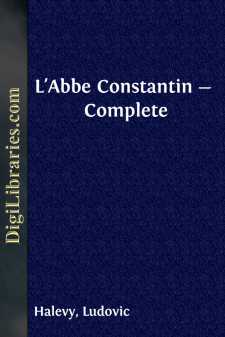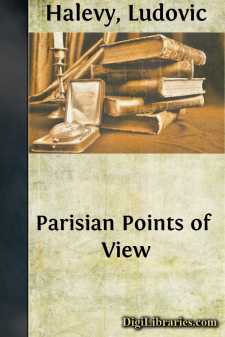Categories
- Antiques & Collectibles 13
- Architecture 36
- Art 48
- Bibles 22
- Biography & Autobiography 813
- Body, Mind & Spirit 142
- Business & Economics 28
- Children's Books 15
- Children's Fiction 12
- Computers 4
- Cooking 94
- Crafts & Hobbies 4
- Drama 346
- Education 46
- Family & Relationships 57
- Fiction 11829
- Games 19
- Gardening 17
- Health & Fitness 34
- History 1377
- House & Home 1
- Humor 147
- Juvenile Fiction 1873
- Juvenile Nonfiction 202
- Language Arts & Disciplines 88
- Law 16
- Literary Collections 686
- Literary Criticism 179
- Mathematics 13
- Medical 41
- Music 40
- Nature 179
- Non-Classifiable 1768
- Performing Arts 7
- Periodicals 1453
- Philosophy 64
- Photography 2
- Poetry 896
- Political Science 203
- Psychology 42
- Reference 154
- Religion 513
- Science 126
- Self-Help 84
- Social Science 81
- Sports & Recreation 34
- Study Aids 3
- Technology & Engineering 59
- Transportation 23
- Travel 463
- True Crime 29
L'Abbe Constantin - Complete
by: Ludovic Halevy
Categories:
Description:
Excerpt
LUDOVIC HALEVY
Ludovic Halevy was born in Paris, January 1, 1834. His father was Leon Halevy, the celebrated author; his grandfather, Fromenthal, the eminent composer. Ludovic was destined for the civil service, and, after finishing his studies, entered successively the Department of State (1852); the Algerian Department (1858), and later on became editorial secretary of the Corps Legislatif (1860). When his patron, the Duc de Morny, died in 1865, Halevy resigned, giving up a lucrative position for the uncertain profession of a playwright: At this period he devoted himself exclusively to the theatre.
He had already written plays as early as 1856, and had also tried his hand at fiction, but did not meet with very great success. Toward 1860, however, he became acquainted with Henri Meilhac, and with him formed a kind of literary union, lasting for almost twenty years, when Halevy rather abruptly abandoned the theatre and became a writer of fiction.
We have seen such kinds of co-partnerships, for instance, in Beaumont and Fletcher; more recently in the beautiful French tales of Erckmann-Chatrian, and still later in the English novels of Besant and Rice.
Some say it was a fortunate event for Meilhac; others assert that Halevy reaped a great profit by the union. Be this as it may, a great number of plays-drama, comedy, farce, opera, operetta and ballet—were jointly produced, as is shown by the title-pages of two score or more of their pieces. When Ludovic Halevy was a candidate for L'Academie—he entered that glorious body in 1884—the question was ventilated by Pailleron: "What was the author's literary relation in his union with Meilhac?" It was answered by M. Sarcey, who criticised the character and quality of the work achieved. Public opinion has a long time since brought in quite another verdict in the case.
Halevy's cooperation endowed the plays of Meilhac with a fuller ethical richness—tempered them, so to speak, and made them real, for it can not be denied that Meilhac was inclined to extravagance.
Halevy's novels are remarkable for the elegance of literary style, tenderness of spirit and keenness of observation. He excels in ironical sketches. He has often been compared to Eugene Sue, but his touch is lighter than Sue's, and his humor less unctuous. Most of his little sketches, originally written for La Vie Parisienne, were collected in his 'Monsieur et Madame Cardinal' (1873); and 'Les Petites Cardinal', (1880). They are not intended 'virginibus puerisque', and the author's attitude is that of a half-pitying, half-contemptuous moralist, yet the virility of his criticism has brought him immortality.
Personal recollections of the great war are to be found in 'L'Invasion' (1872); and 'Notes et Souvenirs', 1871-1872 (1889). Most extraordinary, however, was the success of 'L'Abbe Constantin' (1882), crowned by the Academy, which has gone through no less than one hundred and fifty editions up to 1904, and ranks as one of the greatest successes of contemporaneous literature....



